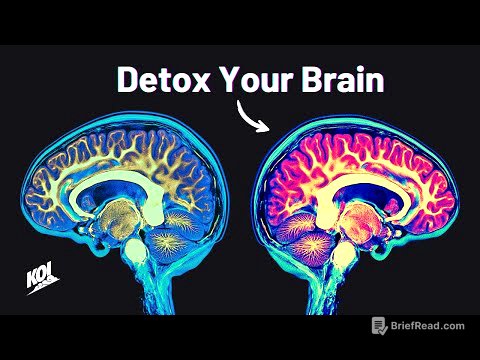TLDR;
The Ministry of Health is addressing the escalating public health threat of drug and substance abuse, particularly among youth aged 15-35. A nationwide campaign was initiated to raise awareness, strengthen healthcare providers' capacity, and promote healthy lifestyle choices. Key strategies include training health workers, mobilizing funds, reviewing laws and policies, establishing rehabilitation centers in high-prevalence counties, and integrating mental health and substance use disorder treatment into the Social Health Insurance Fund. The ministry also emphasizes the importance of avoiding over-the-counter medication and working with educators, religious leaders, and community health promoters to protect future generations.
- Nationwide public awareness campaign to combat drug abuse.
- Focus on training and equipping healthcare workers.
- Establishment of rehabilitation centers in high-prevalence counties.
- Integration of mental health and substance abuse treatment into health insurance.
- Emphasis on community involvement and responsible medication use.
Introduction: Public Health Threat of Drug and Substance Abuse [0:02]
The Ministry of Health is deeply concerned about the increasing public health threats posed by drug and substance abuse across the country, especially among youth aged 15 to 35. Commonly abused substances include alcohol (particularly illicit brews), bhang, tobacco, prescription medications like codeine and sedatives, and, in urban areas, heroin and cocaine. The growing availability and marketing of novel nicotine products to young people presents new regulatory and enforcement challenges. National data from 2022 indicates that approximately 632,000 individuals aged 15-24 and over 1.5 million individuals aged 25-35 are affected by substance use.
National Awareness Campaign and Objectives [1:41]
In response to the significant challenge, the ministry initiated a comprehensive nationwide public awareness and stakeholder sensitization campaign from November 2024 to February 2025. This campaign adopted a cluster-based implementation model across all 47 counties. The objectives include promoting healthy lifestyle choices, raising public awareness about the dangers of substance use, sensitizing key stakeholders across sectors, and strengthening the capacity of health providers to manage substance use disorders. The campaign has engaged over 100,000 members of the public through forums, trained over 5,000 key stakeholders (including law enforcement and community leaders), and involved 107,000 community health promoters. Additionally, over a thousand healthcare workers have been sensitized and equipped to detect, manage, and refer patients with substance use and mental health disorders.
Multi-Sectoral Collaboration and Prioritized Training [3:23]
The initiative involves multi-sectoral collaboration with the judiciary, national government administrative officers, the Kenya Police, civil society organizations, women and youth groups, religious leaders, and county health management teams. This coordinated participation reaffirms a shared national commitment to prevention, enforcement, treatment, and rehabilitation. The ministry has prioritized health worker training to support early detection, clinical management, and appropriate referral for individuals with substance use disorders, informed by growing clinical evidence linking substance abuse with mental health conditions like depression, anxiety, and psychosis.
Challenges and Priority Interventions [4:36]
Addressing the issues requires training more personnel, mobilizing more funds for logistical support and capacity building, and reviewing laws and policies. As a priority intervention, the state department aims to strengthen treatment and rehabilitation services, identifying ten counties with high prevalence for the establishment of government-supported rehabilitation and cessation centers. These counties include Garisa, Kakamega, Kericho, Kisumu, Laikipia, Machakos, Meru, Mombasa, Nakuru, and Uasin Gishu, with plans to expand the number of centers. These centers will provide affordable detoxification and rehabilitation services, counseling, psychosocial support, community-based reintegration, and aftercare programs.
Mental Health Integration and Social Health Authority [6:05]
Given that it is mental health month, the mental health consequences of drug and substance abuse are particularly concerning among adolescents and young adults, especially those aged 15 to 35, who account for over half of drug users. Early initiation into drug use is strongly associated with the onset of lifelong mental health disorders. The ministry, through the Social Health Authority, has integrated mental health and substance use disorder treatment into the Social Health Insurance Fund, covering detoxification, rehabilitation, and mental health services for both outpatient and inpatient care. These measures are designed to remove financial barriers, standardize treatment costs, and encourage early intervention and recovery.
Future Actions and Community Involvement [7:37]
Continued coordinated and adequately resourced action is essential. Moving forward, the state department aims to strengthen enforcement of existing drug control laws, expand school-based and community-level awareness programs, support youth empowerment and economic inclusion, and enhance community leadership and stakeholder engagement. This includes developing tailor-made county action plans, appointing drug and substance abuse focal persons in each county, and establishing national knowledge hubs for training, research, and practice.
Antimicrobial Resistance and Collective Effort [8:35]
The conversation also touched on antimicrobial resistance (AMR) as a global threat, urging the public to avoid over-the-counter medication and self-prescription. The public is advised to visit health facilities for proper diagnosis and prescription by skilled healthcare professionals. The critical roles of educators, religious leaders, community elders, elected representatives, civil society, and community health promoters are recognized in this collective effort. Everyone must work together to protect future generations from the grip of drugs, substance use, and mental health issues, creating a healthier, safer, and drug-free Kenya where youth are equipped with the knowledge and support to make informed choices and live a life of dignity and well-being.









